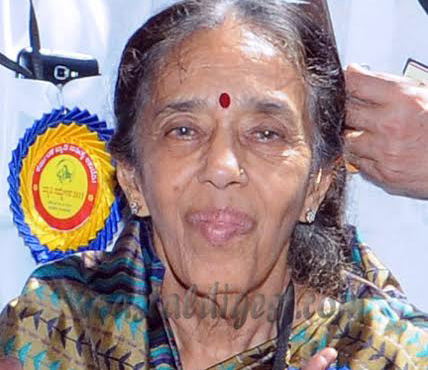
Mangalore, Jan 14: Well-known scholar and linguist Dr Susheela P. Upadhyaya breathed her last on Tuesday.
78-year-old Upadhyaya, who has made comprehensive study in finding the roots of Beary literature, was the first person to obtain PhD on Beary language.
Dr Upadhyaya started her career as a Hindi Tutor and Girls' Hostel Warden at MGM College, Udupi. Later, she worked as a teacher in Good Shepherd Convent European High school in Bangalore. After obtaining MA in Hindi from the Banaras Hindu University, she became a lecturer in the BMS College For Women in Bangalore.
Following her husband's transfer to Pune, she joined Deccan College and worked as a research associate. She also obtained MA in linguistics in Pune. She also worked as a research assistant at the Central Institute of Indian Languages in Mysore. She was conferred doctoral degree for her thesis titled 'Descriptive and Comparative Study of the Beary Language of Dakshina Kannada'
The only daughter of Padmanabha Sharma, a priest in Tiruvananthapuram temple in Kerala, Dr Upadhyaya was born in 1937 in Majur village. Amidst various difficulties and family crisis she pursued higher education. In 1958 she entered into marital life with Dr. Uliyar Padmanabha Upadhyaya, a prominent Tulu scholar. Upadhyaya couple was very famous among Tulu and Beary communities of coastal Karnataka.






Comments
Add new comment